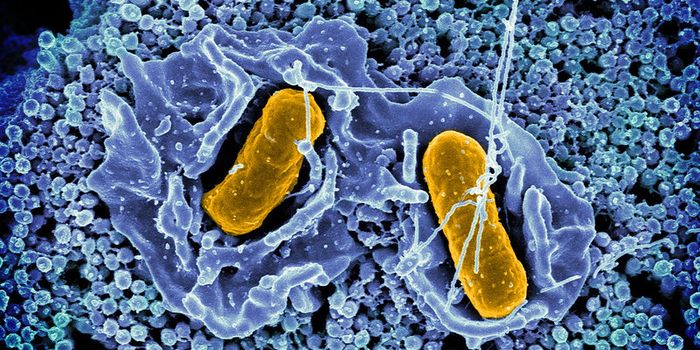New Cancer Drug Reboots Stalled Immunotherapies
In contrast to traditional chemotherapies, immunotherapies reprogram the patient’s own immune system to fight tumor cells. The hope is that these types of treatments will be more effective at permanently eliminating cancer cells and have fewer side effects due to their more targeted nature. However, clinical testing of immunotherapeutics has revealed that certain types of malignancies are resistant to immunotherapies.
Cancer researchers have developed a new drug to kickstart the immune system in patients with cancers that are unresponsive to immunotherapies. A study published in the Proceedings of the National Academy of Sciences details data from a clinical trial of plerixafor in patients with advanced pancreatic or colorectal cancer. The aim of the study was to evaluate the potential of the drug in enhancing the performance of a class of immunotherapies known as immune checkpoint inhibitors. Such treatments unleash the body’s immune system by lifting inbuilt safety nets, activating immune cells to aggressively target and remove tumors.
"Those tumors often do not seem to be visible to the immune system and do not seem to be unmasked by these therapies that are currently available,” explained Tobias Janowitz, a lead author of the study. “And we have reasons to believe that that is because they can engage an immune suppressive pathway that keeps most of the immune cells out of the cancer cell nest."
Analysis of the patient samples revealed that their tumors had been infiltrated by immune cells after receiving plerixafor — a critical first step required for effective immunotherapies. The team was encouraged by additional data that showed plerixafor was also able to help patients whose cancers do respond to checkpoint inhibitors, demonstrating its potential versatility in the clinic.
"I am delighted that the work of this multi-disciplinary team has translated important laboratory findings into patients, with the potential to make a difference in these hard-to-treat cancers," said Duncan Jodrell who led the clinical trial.
Sources: PNAS, Medical Xpress.









